WASHINGTON (Army News Service, Oct. 7, 2008) - Community support is essential in maintaining the well being of Soldiers and families with today's high op-tempo and repeated deployments, said Secretary of the Army Pete Geren and other officials at the Association of the United States Army Annual Meeting's second Family Forum today.
The speakers, who included Army Reserve Chief Lt. Gen. Jack C. Stultz Jr. and his wife Laura; Erin Thede, the chief of the National Guard's Soldier Family Support and Services Division; Col. Scotty Grigsby, the director of the Army Reserve Warrior and Family Assistance Center and retired Maj. Gen. Craig B. Whelden, who runs the Army Community Covenants, all talked about how Soldiers are a part of the community.
Communities are encouraged to engage with Soldiers through the community covenants that have been signed around the country. According to Wheldon, 65 signing ceremonies have taken place to date, with more added every day.
Getting communities to sign outside major installations is easy, he added, because an installation like Fort Hood is the lifeblood of local towns. The challenge, he said, is getting communities to sign to support National Guard and Reserve Soldiers. These communities have to be reminded that Soldiers are part of the community.
"Community covenants are a recognition that there's really no substitute for neighbors helping neighbors. All of you are parts of the communities which surround installations. You're part of the fabric of that city, that county. And those communities are filled with civilians with a unique appreciation for what you do, civilians who want to help and would like to figure out ways to do more and you see it all over the country," Geren said, adding that community covenants are ways communities can find out what Soldiers and families need.
"We wanted to bring those communities and let them see inside the gate and let them respond on a personal level," he continued. He also said that community covenants were a perfect opportunity to discuss initiatives with state lawmakers like in-state college tuition for military children, even if families are transferred, and the Interstate Compact, which allows children to transfer schools without losing credits.
The National Guard and Army Reserve have also taken this idea and have run with it in their local communities.
"For 28 Days out of every month, we are your first responders. We are your police, your firefighters, your EMTs. We're your community leaders. We are your grocer, your postman, we're your bank tellers. But more important, we're your fellow Soldiers, your family, we're your community," said Thede, who was at AUSA to talk about the Guard's Beyond Yellow Ribbon program.
Started by the Minnesota National Guard to ensure that Soldiers and families have time to reintegrate after deployment, the program also exists to remind families and communities that Soldiers need their support long after a deployment ends.
The program brings units back together for reintegration training shortly after their return and helps them adjust to civilian life. The Guard talks to families as Soldiers are deploying, and everyone 30, 60 and 90 days after they return home. In fiscal year 2010, the program will be added to the base budget and Geren recently approved invitational travel orders so family members could go to the training with their Soldiers and learn about what kind of changes in mood or temperament to expect.
But many Soldiers and families may need assistance beyond that date, and that is where the Army Reserve comes in. Spearheaded by Laura Stultz, the Army Reserve is trying to build virtual installations around the country, where any Soldier or family member - active, Guard or Reserve - can get assistance with issues like TRICARE or ID cards.
It's important to have these in the local community and as accessible as the post office, she said, so everyone knows where it is and community members can get involved as well. The Army Reserve has selected eight pilot locations in places like Montana and Pennsylvania - areas that don't have large military populations.
"A unit isn't ready until the family's ready," said Lt. Gen. Stultz. "We measure Soldier readiness, we measure equipment readiness, we measure training readiness, but we don't measure family readiness. We need to figure it out."
The Army Reserve is also making sure Soldiers and families are ready through the Army Reserve Warrior and Family Assistance Center, which is on hand to help Reserve Soldiers and families with whatever problems they may encounter, such as healthcare, personnel difficulties and financial problems.
Each person who appeals to the program is assigned a sponsor to help with their issue, and wounded warriors are assigned sponsors based on their zip codes. According to Grigsby, the director, some issues are open and shut and others can go on for a year or more.
"Our commitment will not end until that Soldier or family member says 'enough. We've had enough. You've done all you can, now it's time for us to take over and go from here,'" said Grigsby.
During the forum, Geren also presented the new Secretary of the Army Quality of Life Awards to installations and units that have made significant improvements to quality of life issues in the past year, including U.S. Army Garrison Wiesbaden, Germany; USAG Manheim, Germany; USAG Brussels, Belgium; USAG Grafenwoehr, Germany; Military Intelligence Readiness Command, U.S. Army Reserve; Fort Lewis, Wash.; Fort Riley, Kan. and Fort Hood, Texas.
"The needs of families change every day. What we are as a nation asking our Soldiers to do changes every day and all of you are on the front lines of that effort," Geren said. "As we transform to meet the needs of Soldiers, we must also make sure that we transform to meet the needs of family members. It's the right thing to do and it's something we must do if we want to sustain this national treasure that is the all-volunteer force."
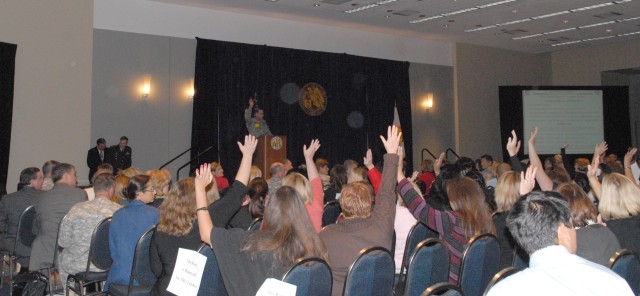
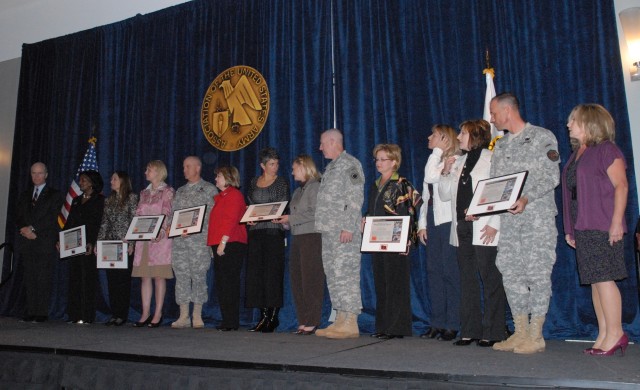
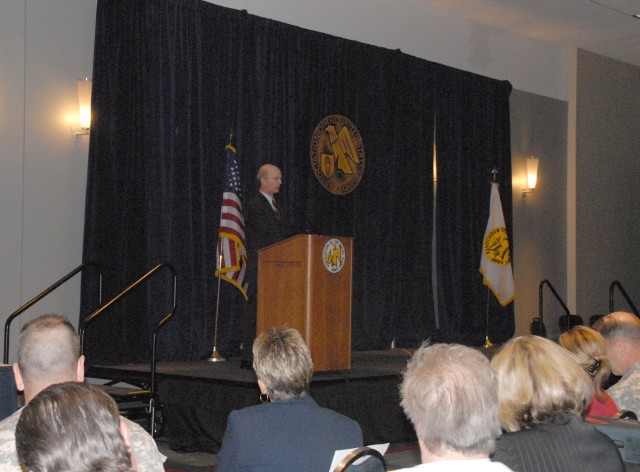
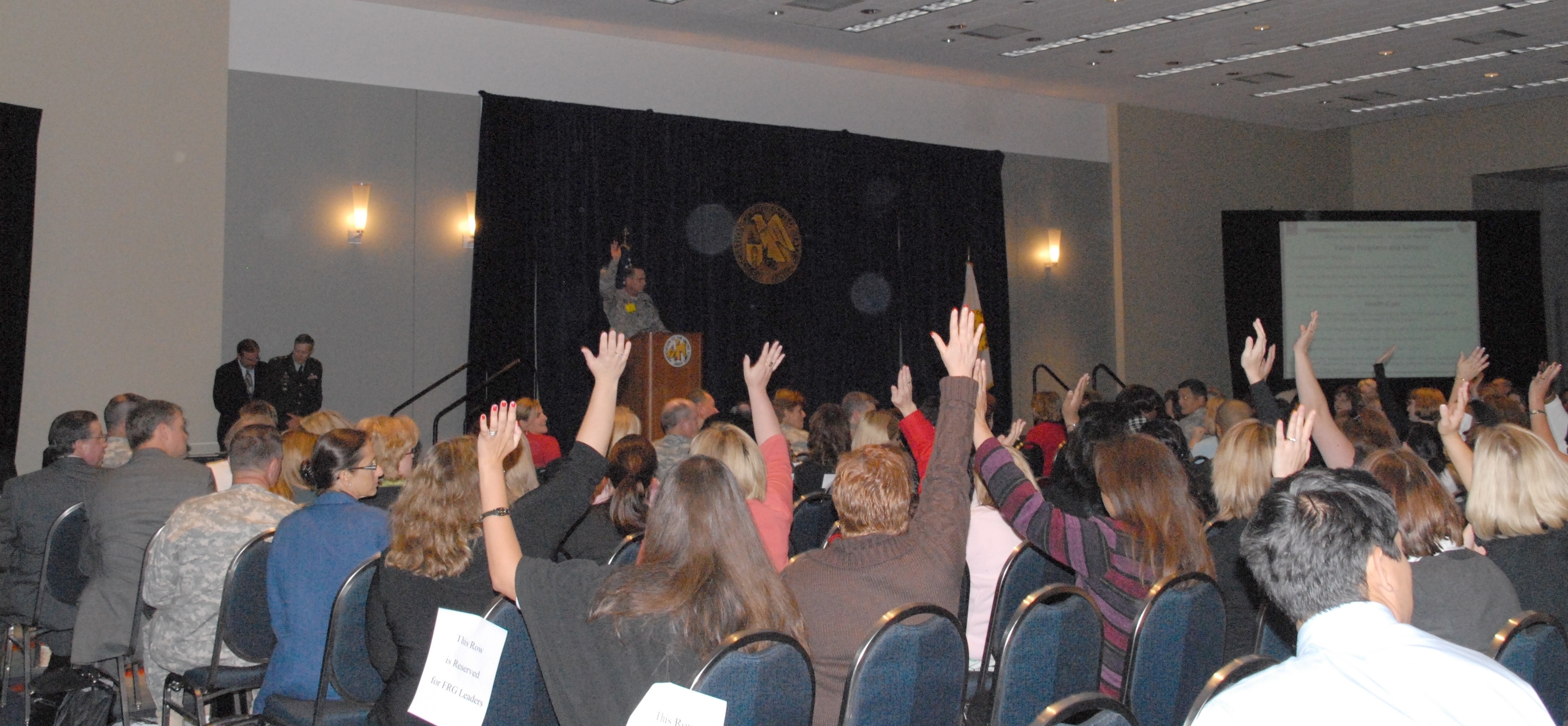
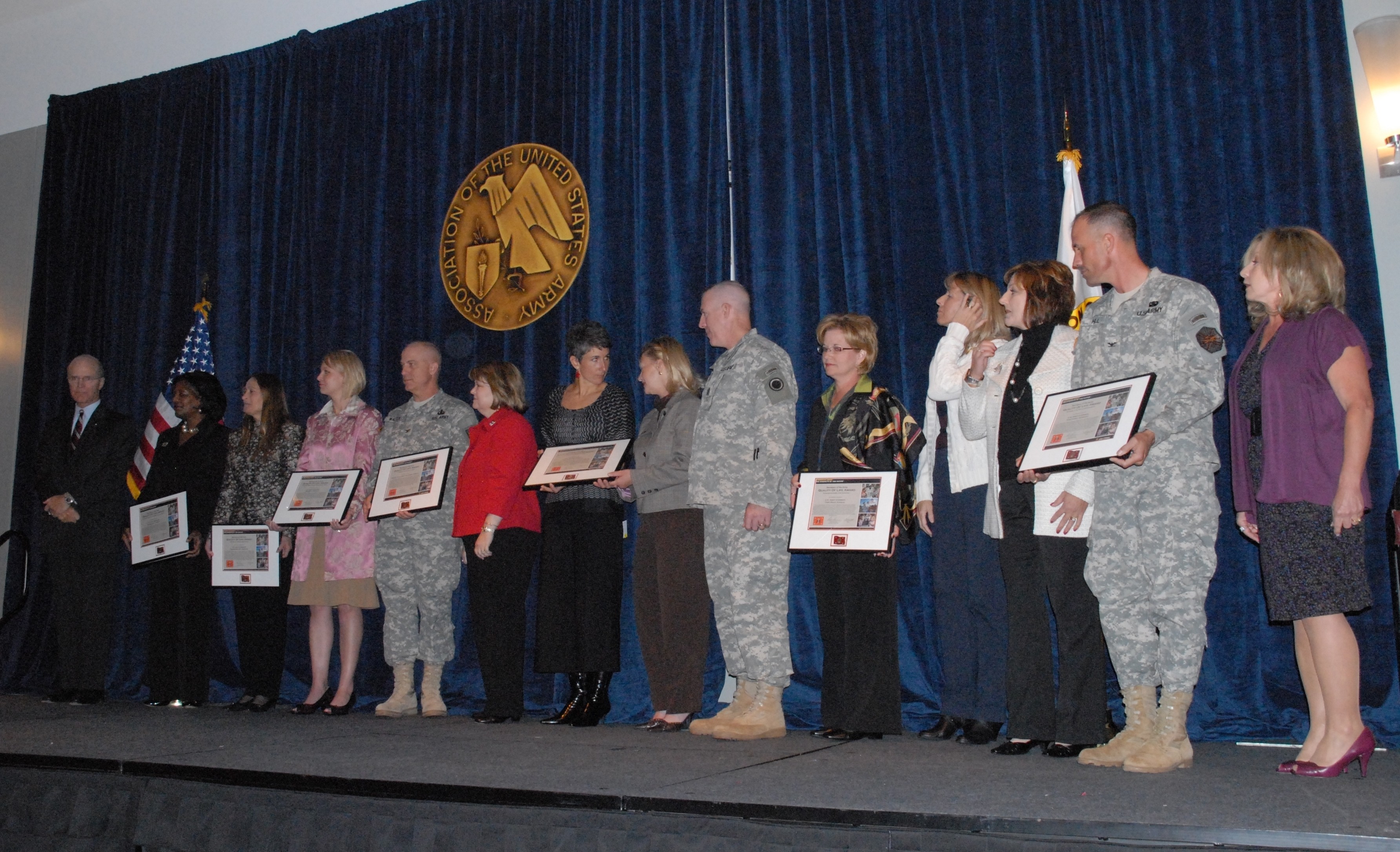
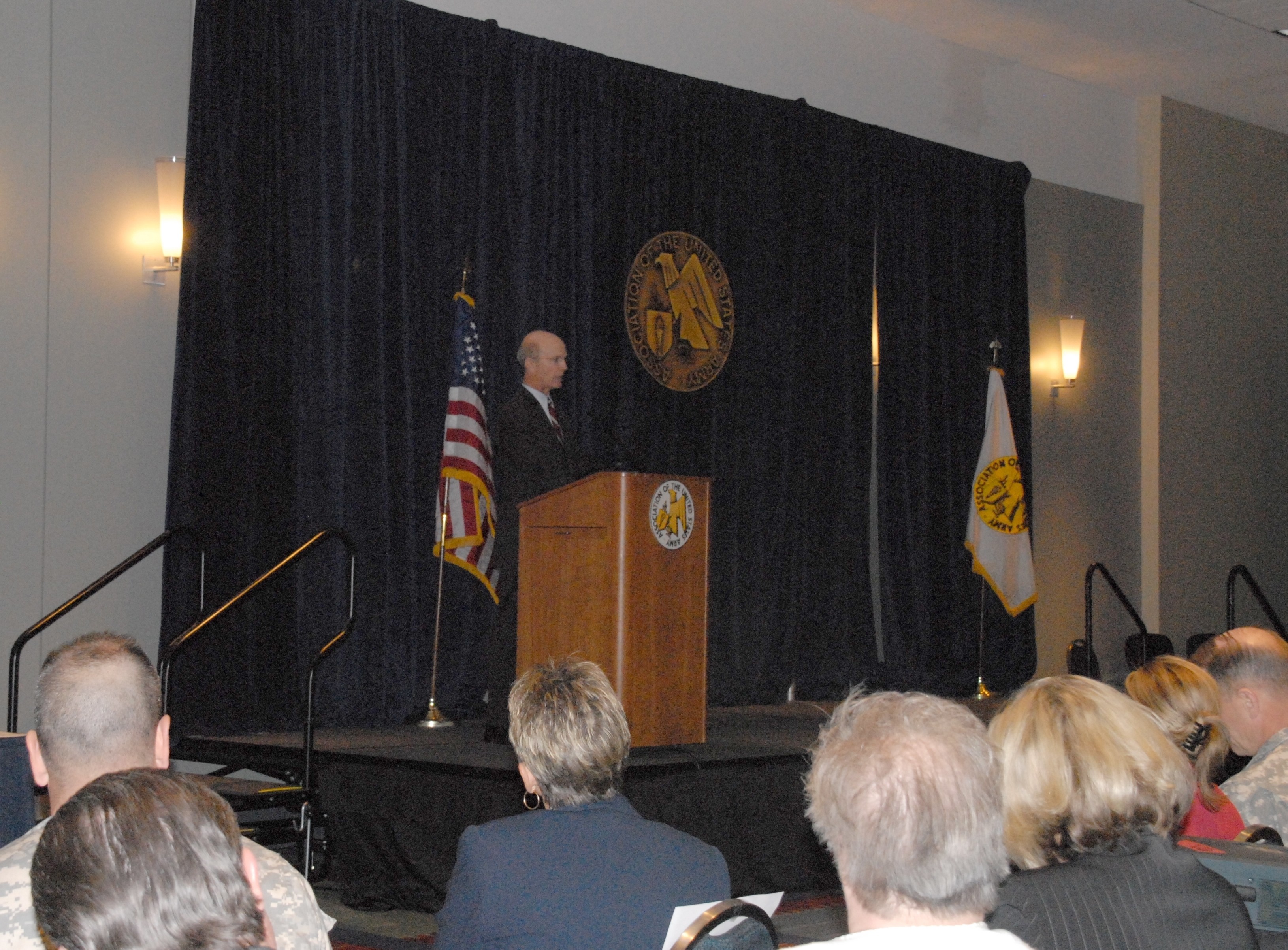
Social Sharing